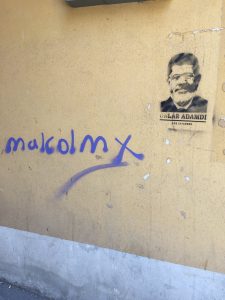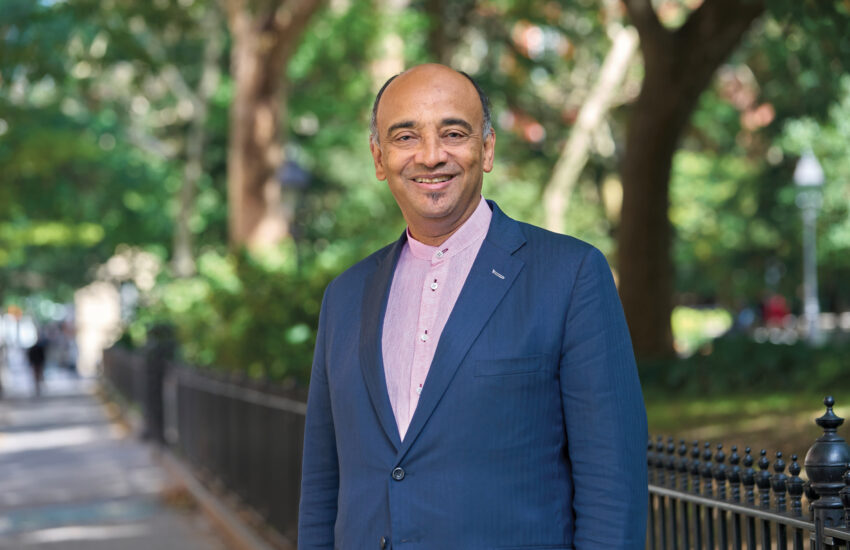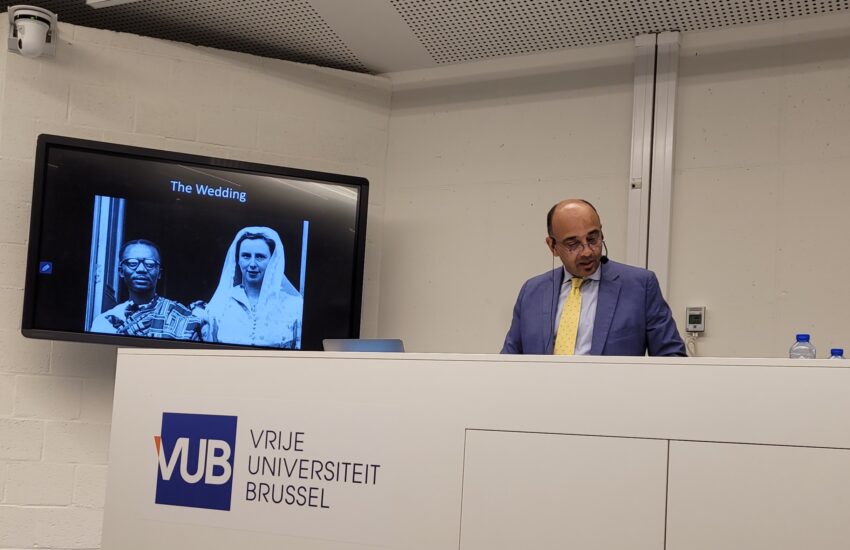Siyah: Malcolm X as a Political Symbol Among Turkish Islamists
This is the thirteenth instalment in ‘Siyah’, a series which explores African Diaspora and Turkish social and cultural narratives, with journalist Adama Juldeh Munu.
In the years since Malcolm X successfully internationalised his political cause, it has been readapted and reinterpreted by Turkish Islamist newspaper columnists to make the case for their own political causes in contemporary Turkey. In this article, Jeffrey Bishku-Aykul argues that while the Turkish Islamist movement has achieved political hegemony with the rise of the Justice and Development Party (AK Party/AKP), these columnists draw from Malcolm X’s worldview to make anti-hegemonic arguments.
The below has been excerpted and readapted with permission from a draft of Jeffrey Bishku-Aykul’s 2020 master’s thesis for Bogazici University, The Diffusion of Malcolm X as a Political Symbol Among Turkish Islamists. The full and final published work can be accessed at tez.yok.gov.tr.
Malcolm X is Recognised in Turkey
Although I grew up in the United States, it was not until I moved to Turkey that I read The Autobiography of Malcolm X. I finally read it in 2016, upon the recommendation of a colleague at the English-language Turkish state broadcaster, TRT World. As a Turkish-American and long-time resident of Chicago who had grown up near the one-time home and mosque of Malcolm X’s mentor, I found the book to be a fascinating and multidimensional account of Islamic and American identity. Like a ‘Rorschach inkblot’, Malcolm X’s life story could mean different things to different people, depending on their own experiences, beliefs and cultures.
Almost two years later, I found Malcolm X’s face staring at me through the window of an Islamic bookstore in Istanbul’s Fatih neighbourhood. Perched atop a pile of books covering subjects such as Russia, the Palestinian-Israeli conflict and Turkish-Islamic thought sat a collection of speeches by the 20th century Black nationalist leader. The store was promoting a copy of Challenging America (Amerika’ya Meydan Okurken), the first in a two-part series of speeches translated by Istanbul-based writer Bugra Ozler; through the window, I could also see Alex Haley’s Autobiography of Malcolm X. Three months after that, I found Malcolm X’s name ‘graffitied’ near the bookstore. I also found his name in the nearby Balat neighbourhood, and, farther away, in Ortaköy. It is unclear whether these names were the work of the same vandal. Yet seeing Malcolm X’s speeches displayed so prominently in a bookshop window and his name scribbled publicly in a city so distant from his native US indicated a Turkish connection to the historical figure.
It does not matter that Malcolm X never spoke Turkish nor visited Turkey. He never belonged to nor endorsed the contemporary Turkish Islamist movement himself, (but) his efforts at internationalizing and thus bridging his own movement’s frame with those of others led to the eventual diffusion of him as a symbol and his ideas by Turkish Islamist newspaper columns to their readers. Because of the key role that newspapers have played in the Turkish Islamist quest for hegemony, references to Malcolm X by columnists have been important to the diffusion of the leader as a symbol to the broader movement.
Although his name does not feature prominently in Turkish political discourse, Malcolm X has been the focus of some major headlines and politically significant events. In September 2018, Turkish President Recep Tayyip Erdoğan met with Malcolm X’s daughters, Ilyasah and Qubilah Shabazz, on the side-lines of the 73rd UN General Assembly. In an interview around that time, Ilyasah Shabazz said that Erdoğan represented her father’s legacy. A month later, amid ongoing tensions between the US and Turkey, the Turkish government renamed the avenue where a new American embassy was being constructed after Malcolm X. Both events were covered extensively in Turkish language media.

A Brief Look into Islamism and Turkey
In his 2016 book, Islamism: What it Means for the Middle East and the World, Tarek Osman writes that, “For the vast majority of Islamists, the principles of the faith entail submitting to those rules that – as a Muslim – one believes were laid down by God in a divine revelation to the Prophet Mohammed,” adding, however, that there exists a “spectrum of ‘Islamisms’: some views that strongly invoke certain interpretations of Islam in political and social life; others that have adopted a light-tough approach.” Carrie Wickham explains further that “Although the goals and strategies of Islamists differ, they are united in their conviction that the most vexing problems facing contemporary Muslim societies can be resolved through an individual and collective return to religion.” These definitions do not explicitly indicate the extent to which an Islamist might seek to apply Islamic law or customs. Islamist movements span aims, environments and methods, ranging from Sayyid Qutb’s Muslim Brotherhood, to supporters of Aliya Izetbegovic’s Islamic Declaration, to members of Necmettin Erbakan’s Milli Gorus to Recep Tayyip Erdoğan’s neoliberal AK Party.
The AKP became Turkey’s ruling party in 2002, on the heels of a severe economic crisis, and by appealing to politically marginalized groups including Turkey’s Kurds and head-scarved women, a stance that fit into the Western pro-human rights consensus of the time. Tugal writes, “The ensuing global disillusionment with prospects for Islamic unity manifested itself in Turkey in the turn of the Islamists to the European Union and to the discourse of universal human rights and democracy, especially after 1997. This move discredited the Islamists in the eyes of nationalist-leaning religious people, while it gained them the sympathy of liberal intellectuals and professionals.” Thus, although the AKP was able to consolidate its power throughout the years and has established political hegemony in today’s Turkey, its roots lie in an anti-hegemonic, rights and justice-oriented discourse, one which appears in the Turkish Islamist newspaper columns this article analyses, and which draws inspiration from Malcolm X.
The Diffusion of the Symbol and Ideas of Malcolm X
The publication Yeni Safak accounts for half of all columns mentioning Malcolm X (121), with Milli Gazete coming in second place (81) and Yeni Akit in third (40). Notably, just over half of the 82 authors (42) published more than one article mentioning Malcolm X. The vast majority wrote four or fewer articles, with less than a fifth (15) writing five or more articles, most of them in Yeni Safak.
Top columnists by publication
(published five or more articles mentioning Malcolm X)
Yeni Akit
Milli Gazete
Yeni Safak
Abdurahman Dilipak Hasan Aksay
Meryem Nida
Mustafa Yildirim
Sakir Tarim
Abdulaziz Kiransal
Mahmut Toptas
Akif Emre
Ali Murat Guven
Ali Nur Kutlu
Gokhan Ozcan
Hakan Albayrak
Muhammad Berdibek
Nazif Gurdogan
Omer Lekesiz
Rasim Ozdenoren
Salih Tuna
Authors of these columns reference both to assign credibility to Malcolm X (‘Malcolm X as a Quotable Moral Authority, Symbol of the Ummah, Symbol of Martyrdom and Companion of Muhammad Ali’) and reaffirm their own beliefs (‘Malcolm X as an Internal Critic of America, Proof of Islam’s Transformative Power’). Frequently, Malcolm X is employed as a symbol and his words are used to legitimize these columnists’ political positions, regardless of whether they are directly relevant to the Black leader’s life and work.
In these columns, a major factor underpinning Malcolm X’s credibility is his Muslim identity. Malcolm X and his life story are frequently interpreted through a Pan-Islamist lens, with an emphasis on his identity as a Muslim convert, a Black/African/American member of the Ummah, an exemplary man of faith and a martyr. Authors of these columns repeatedly invoke his name alongside other high-profile Muslim figures (i.e. Necmettin Erbakan or Alija Izetbegovic).
While some articles mention Malcolm X purely in the context of racial politics, a large number of them emphasize his Muslim identity, reflecting a Turkish Pan-Islamist view in which the political leader’s religious identity is potentially more significant than his racial or ethnic identity. In a February 2016 column in Yeni Safak, for example, author Yusuf Ziya Comert evoked the memory of ‘Malcolm X’s martyrdom’,” writing, “There is no Islamist who does not know the life story of Malcolm X, one of the best Muslims of the past century.” Although he did not elaborate any further as to why this is the case, he indicated how relevant Malcolm X and his views were to Turkish Islamism by mentioning him alongside Turkish Islamist activist Metin Yuksel. In another example, a Milli Gazete column entitled ‘The Conquering of Istanbul and the Conquest Prayer’, author Abdulaziz Kiransal (who uses the very same line in several articles) quotes Malcolm X as saying that, “As a Muslim, I feel obligated to fight for the spread of Islam until all the world bows before Allah.”Ironically, he ignores the rest of Malcolm X’s remark in Cairo, in which he added “but as an Afro-American, I can never overlook the miserable plight of my people in America, so I have two fights, two struggles.”

On the other hand, when Malcolm X’s Black identity is emphasized, it is often done so to showcase the breadth of the Ummah, the global community of Muslims spanning across geography, race and ethnicity. For example, in one article entitled ‘A Pledge for our Children’ – also by Kiransal of Milli Gazete – the author mimics the tone of Turkey’s Republican student pledge. He writes, “I am a Muslim, Alhamdulillah…In America, whites knew me as Malcolm X, the child of a Black-skinned woman.”. In this case, Malcolm X is portrayed as the Muslim world’s Black American emissary. A Yeni Akit article, ‘Young Man, the Ummah Is This’, an open letter of sorts written by Ahmet Anapali in December 2015 as a response to those people who claim it is in disarray, reads: “You are as Turkish as Alparslan Gazi, as Kurdish as Selahaddin-i Eyyubi, as Arab as Omer Muhtar, as Chechen as Sheik Samil, as Albanian as Mehmet Akif, as Bosnian as Aliya Izzet Begovic, as Black and African as Malcolm X.” Although this description overlooks Malcolm X’s identity as an American citizen and portrays him as ‘African’, it nevertheless serves the purpose of expanding the concept of the Ummah to include Black Muslims and Africans.
Across all three publications, Malcolm X’s martyrdom is an especially popular topic in February, referred to by some authors as the ‘month of martyrs’. In a Yeni Akit article entitled ‘’February, month of martyrs’, Mehmet Ali Tekin lists Malcolm X among other names such as Hasan al-Banna and Esad Erbili – names that appear in other writings, too. Another author, Mahmut Toptas of Milli Gazete, went so far as to write in November 2008 (without clarifying who ‘they’ are): “Let’s just say they killed him because he was Muslim.”
Although this serves as a defining example of his Muslim identity among these columns, this is also a simplistic and problematic framing given the role that the domestic politics of the United States and internal affairs of the Nation of Islam played in his untimely death, as well as the complex role that postcolonial politics and relationships with politicians such as the secular Gamal Abdel Nasser played in his affairs.
Finally, another significant way in which Malcolm X is associated with Islam by these columnists is by mentioning him as a companion of Muhammad Ali, another world-famous Muslim convert. The passing of the champion boxer was an internationally important event, with even Turkish President Recep Tayyip Erdoğan, who was in the US at the time, attending an Islamic prayer event for him. In the days and years since, columns have remembered Ali and Malcolm X positively. On June 10, 2016, Yeni Safak columnist Ibrahim Karagul reflected on both men’s lives in ‘Muhammad Ali, Malcolm X and the path of upstanding men’, in which he wrote, “They offered new values, goals and identities to their own societies, besides Islam. In such an era, names like Muhammad Ali and Malcolm X expressed resistance. In the greatest poverty they stood on their feet with an identity, and with that identity they could rebel in the heart of the West.” Even a year after his death, in 2017, Milli Gazete columnist Ibrahim Halil Er wrote, “I recognized Muhammed Ali at a young age. After that, I became interested in American Muslims and got to know Malcolm X, another hero. I read his [biography]. I became consciously opposed to Western imperialism.” In the aftermath of the 2018 currency crisis, Milli Gazete columnist Mahmut Toptas, in an article entitled ‘We Don’t Need Dollars, We Need Men’, wrote that that “What America really needs are the principles of Islamic faith that Muslims like [Malcolm X] and [Muhammad Ali] have.” In these examples, Malcolm X is placed in the broader history of Islam in America, a history in which he and Muhammad Ali occupy an important role. Both Malcolm X and the boxer occupy a significant position within a pan-Islamist perspective of the United States.
You can check out the rest of the Siyah series here


